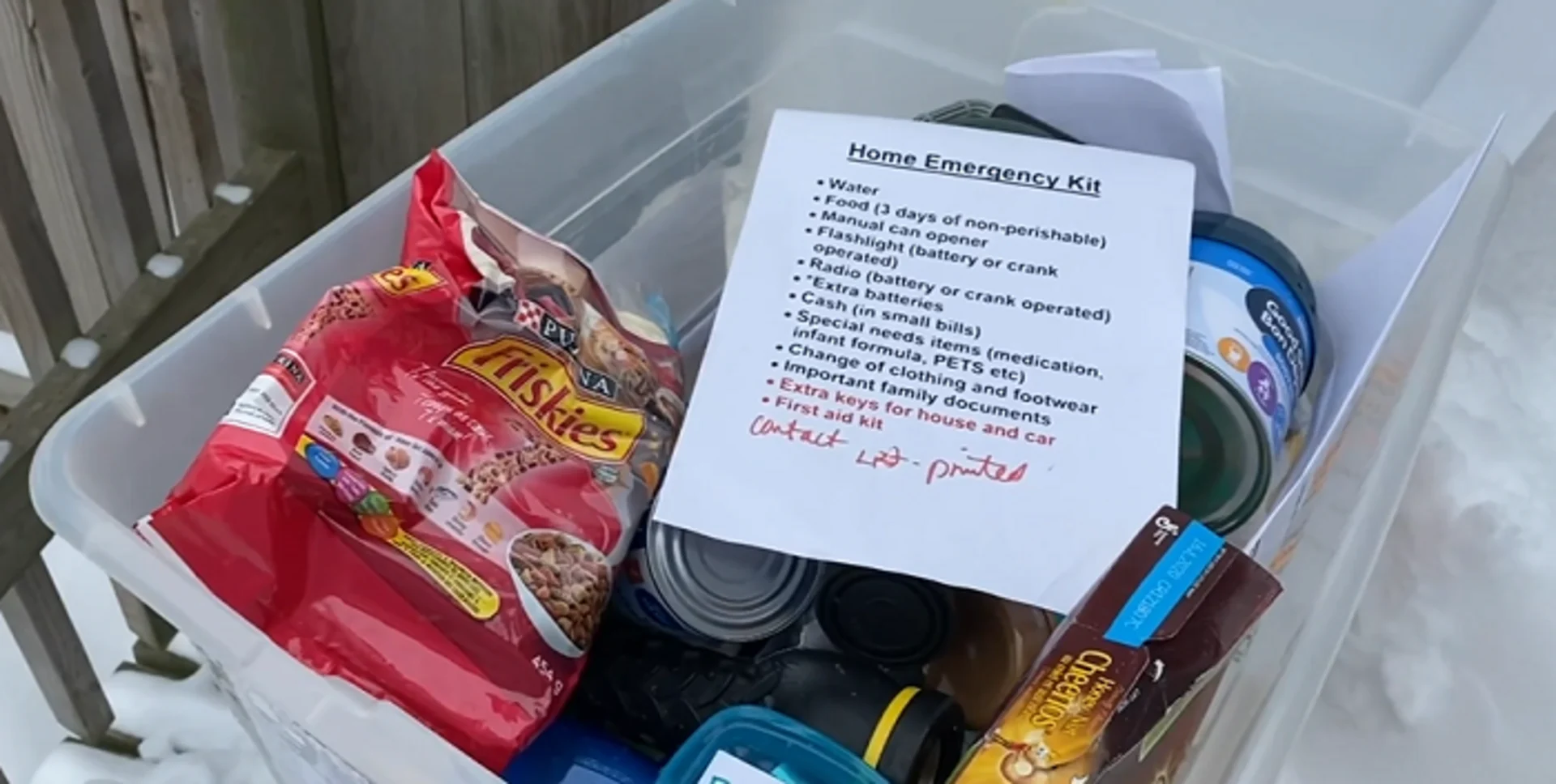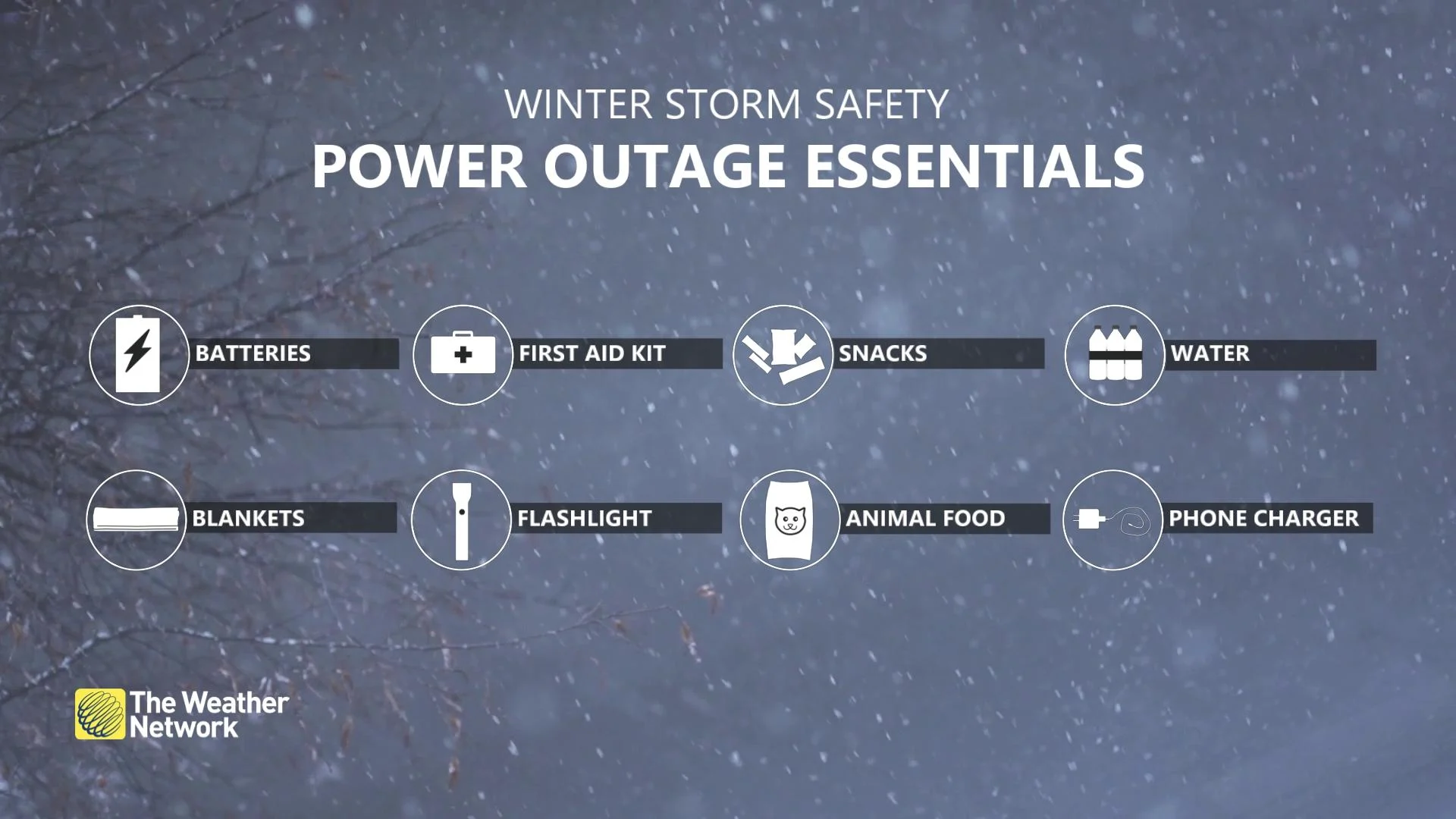
Here's how to stay safe during a winter power outage
Some helpful tips on how to stay safe when the lights go out, courtesy of the Canadian Red Cross.
Canadians know how to withstand the toughest storms, but when the power goes out on a cold and windy night, it can cause headaches for even experienced winter warriors.
So, how can you better prepare for winter power outages?
We asked our friends at the Canadian Red Cross for some tips.
"In the case of a winter storm, when the power goes out, we're hoping you'll already be prepared," MairiAnna Bachynsky, communications manager for the Canadian Red Cross, says.
"Before it even happens, we want you to do these three things: know your risks, make a plan, and pack your emergency kit."
MairiAnna recommends making a list of essentials ahead of a storm and sharing its location with members of your household.
Stock up on bottled water, canned food, blankets, pet food, and first aid supplies.
Make sure medication is topped off, for family members and pets, and kept in an elevated, dry place.

THINGS TO AVOID
Last year in the the U.S., Texas was hit with record-breaking chill and power outages, leading to an uptick in incidents of carbon monoxide (CO) poisoning. That also led to an increase in fires, some due to the use of unconventional heating devices and open flames.
Carbon monoxide (CO) is a colourless, odourless, and tasteless gas that is a byproduct of burning gas, wood, propane, charcoal, or other fuels, the Mayo Clinic says.
When too much builds up in the bloodstream, it can cause serious tissue damage or death.
Tips from the The Canadian Red Cross on avoiding carbon monoxide poisoning include:
Keeping your heating system, water heater, and any other gas, oil, or coal-burning appliances regularly serviced by a licensed technician.
Installing a CO detector in your home and checking the batteries twice a year.
Seeking prompt medical attention if you suspect CO poisoning. Symptoms include dizziness as well as feeling light-headed and nauseous.
Never running a vehicle inside an attached garage. In a detached garage, only do so when the door is open.
Never heating your home with a gas oven.
Never using generators, charcoal grills, camp stoves, or other gasoline or charcoal-burning devices indoors unless they are directly beside an open window, door, or vent.











